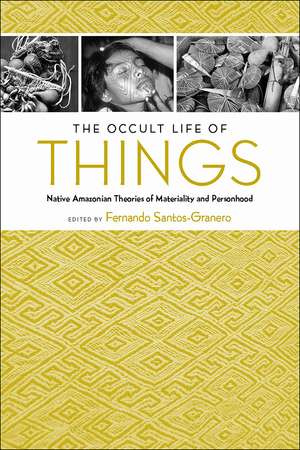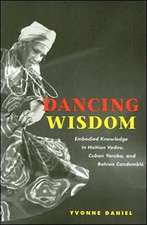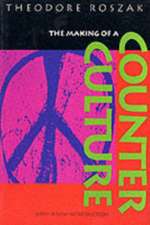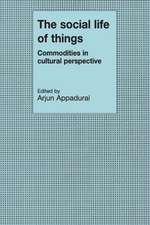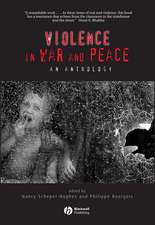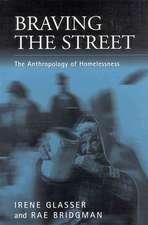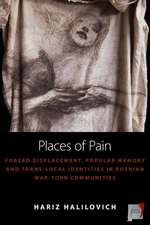The Occult Life of Things: Native Amazonian Theories of Materiality and Personhood
Editat de Fernando Santos-Graneroen Limba Engleză Paperback – feb 2013
Native peoples of the Amazon view objects, especially human artifacts, as the first cosmic creations and the building blocks from which the natural world has been shaped. In these constructional cosmologies, spears became the stings of wasps, hammocks became spiderwebs, stools became the buttocks of human beings.
A view so antithetical to Western thought offers a refreshing perspective on the place and role of objects in human social life—one that has remained under-studied in Amazonian anthropology. In this book, ten scholars re-introduce objects to contemporary studies of animism in order to explore how various peoples envision the lives of material objects: the occult, or extraordinary, lives of “things,” whose personas are normally not visible to lay people.
Combining linguistic, ethnological, and historical perspectives, the contributors draw on a wealth of information gathered from ten Amerindian peoples belonging to seven different linguistic families to identify the basic tenets of what might be called a native Amazonian theory of materiality and personhood. They consider which objects have subjective dimensions and how they are manifested, focusing on three domains regarding Amazonian conceptions of things: the subjective life of objects, considering which things have a subjective dimension; the social life of things, seeing the diverse ways in which human beings and things relate as subjectivities; and the historical life of things, recognizing the fact that some things have value as ritual objects or heirlooms.
These chapters demonstrate how native Amazonian peoples view animals, plants, and things as “subjectivities” possessing agency, intentionality, and consciousness, as well as a composite anatomy. They also show how materiality is intimately linked to notions of personhood, with artifacts classified as natural or divine creations and living beings viewed as cultural or constructed. The Occult Life of Things offers original insights into these elaborate native ontologies as it breaks new ground in Amazonian studies.
A view so antithetical to Western thought offers a refreshing perspective on the place and role of objects in human social life—one that has remained under-studied in Amazonian anthropology. In this book, ten scholars re-introduce objects to contemporary studies of animism in order to explore how various peoples envision the lives of material objects: the occult, or extraordinary, lives of “things,” whose personas are normally not visible to lay people.
Combining linguistic, ethnological, and historical perspectives, the contributors draw on a wealth of information gathered from ten Amerindian peoples belonging to seven different linguistic families to identify the basic tenets of what might be called a native Amazonian theory of materiality and personhood. They consider which objects have subjective dimensions and how they are manifested, focusing on three domains regarding Amazonian conceptions of things: the subjective life of objects, considering which things have a subjective dimension; the social life of things, seeing the diverse ways in which human beings and things relate as subjectivities; and the historical life of things, recognizing the fact that some things have value as ritual objects or heirlooms.
These chapters demonstrate how native Amazonian peoples view animals, plants, and things as “subjectivities” possessing agency, intentionality, and consciousness, as well as a composite anatomy. They also show how materiality is intimately linked to notions of personhood, with artifacts classified as natural or divine creations and living beings viewed as cultural or constructed. The Occult Life of Things offers original insights into these elaborate native ontologies as it breaks new ground in Amazonian studies.
Preț: 253.44 lei
Nou
Puncte Express: 380
Preț estimativ în valută:
48.50€ • 51.86$ • 40.43£
48.50€ • 51.86$ • 40.43£
Carte tipărită la comandă
Livrare economică 17 aprilie-01 mai
Preluare comenzi: 021 569.72.76
Specificații
ISBN-13: 9780816530427
ISBN-10: 0816530424
Pagini: 288
Dimensiuni: 152 x 229 x 23 mm
Greutate: 0.41 kg
Ediția:1
Editura: University of Arizona Press
Colecția University of Arizona Press
ISBN-10: 0816530424
Pagini: 288
Dimensiuni: 152 x 229 x 23 mm
Greutate: 0.41 kg
Ediția:1
Editura: University of Arizona Press
Colecția University of Arizona Press
Notă biografică
Fernando Santos-Granero is a staff scientist for the Smithsonian Tropical Research Institute in Panama and author of Vital Enemies: Slavery, Predation, and the Amerindian Political Economy of Life and The Power of Love: The Moral Use of Knowledge amongst the Amuesha of Central Peru.
Recenzii
"Not only a welcome addition to the anthropological study of indigenous Lowland South American societies, but also a contribution to the comparative study of materiality and personhood conducted in other regions such as Melanesia, Africa, and Euro-America.” – Paolo Fortis, Journal of the Royal Anthropological Institute
“An important and thoughtful book that brings to the fore the ways in which other systems of epistemology and ontology shape the materiality of the world…poised to influence a whole generation of scholarship on Amazonia and beyond.” –Neil Whitehead, American Ethnologist
Descriere
Combining linguistic, ethnological, and historical perspectives, the contributors to this volume draw on a wealth of information gathered from ten Amerindian peoples belonging to seven different linguistic families to identify the basic tenets of what might be called a native Amazonian theory of materiality and personhood.
